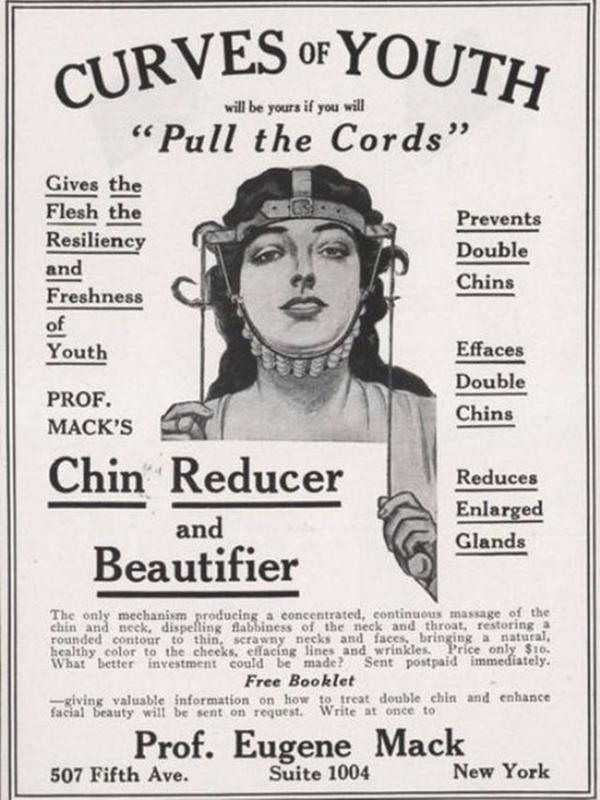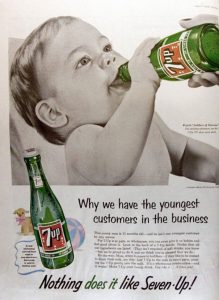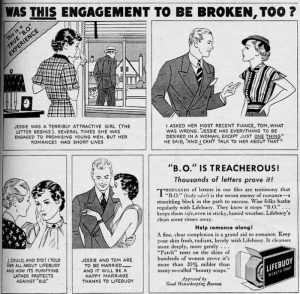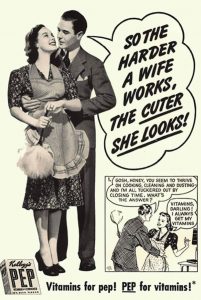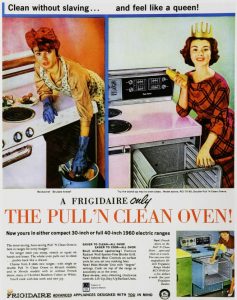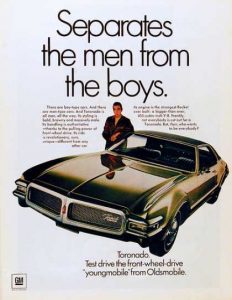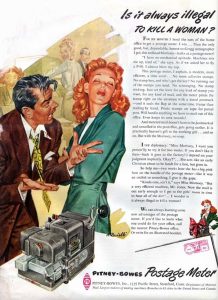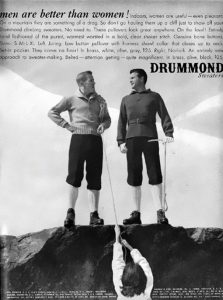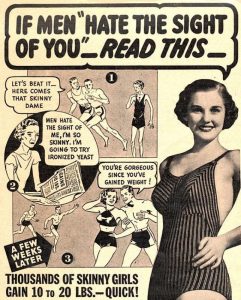As I sit here writing my third draft of this blog post, I feel I must excuse myself. This is the first blog post that I’ve ever written, and I’m struggling with the level of formality required. My first draft was far too factual (and boring, as a result), and the second? Less so, but still very questionable. Here’s hoping this one pans out.
For my first post, I decided to focus on something I love doing — extensive research. Recently, I’ve been quite interested in retro advertising, so I decided to dive more into that subject for this post. In particular, I spent some time looking at some rather… interesting old ads from the early and mid-1900s (to clarify, by “interesting,” I mean absolutely ridiculous). Many of these vintage ads depict offensive stereotypes and complete falsities, from extreme sexism to using babies to promote sugary sodas.
Both hilarious and offensive at the same time, these images do truly take home the idea that advertisers have historically done just about anything they can think of to draw a customer’s eye towards a product. Today, fortunately, there are laws that protect us against such offensive and deceptive forms of advertising. For instance, the Federal Trade Commission enforces the FTC Act, which prohibits “unfair or deceptive acts or practices” in advertising. While a “Chin Reducer and Beautifier” may sound like a wonderful product, if it worked, today you would not be able to advertise its effects without proper disclaimers or evidence.
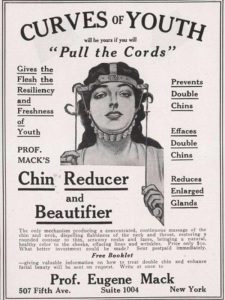
Additionally, because of the way information spreads so fast over technology in our modern era, an offensive ad would be quick to gather public outcry (and might even result in the phenomenon of a “canceled” company). In sum, this means that you can no longer use a baby to advertise cigarette consumption — tough break for baby models and cigarette companies of the world, but probably best for the consumer. As David Ogilvy, AKA the “Father of Advertising,” states, “Never write an advertisement you wouldn’t want your own family to read. You wouldn’t tell lies to your own wife. Don’t tell them to mine… If you tell lies about a product, you will be found out.”

